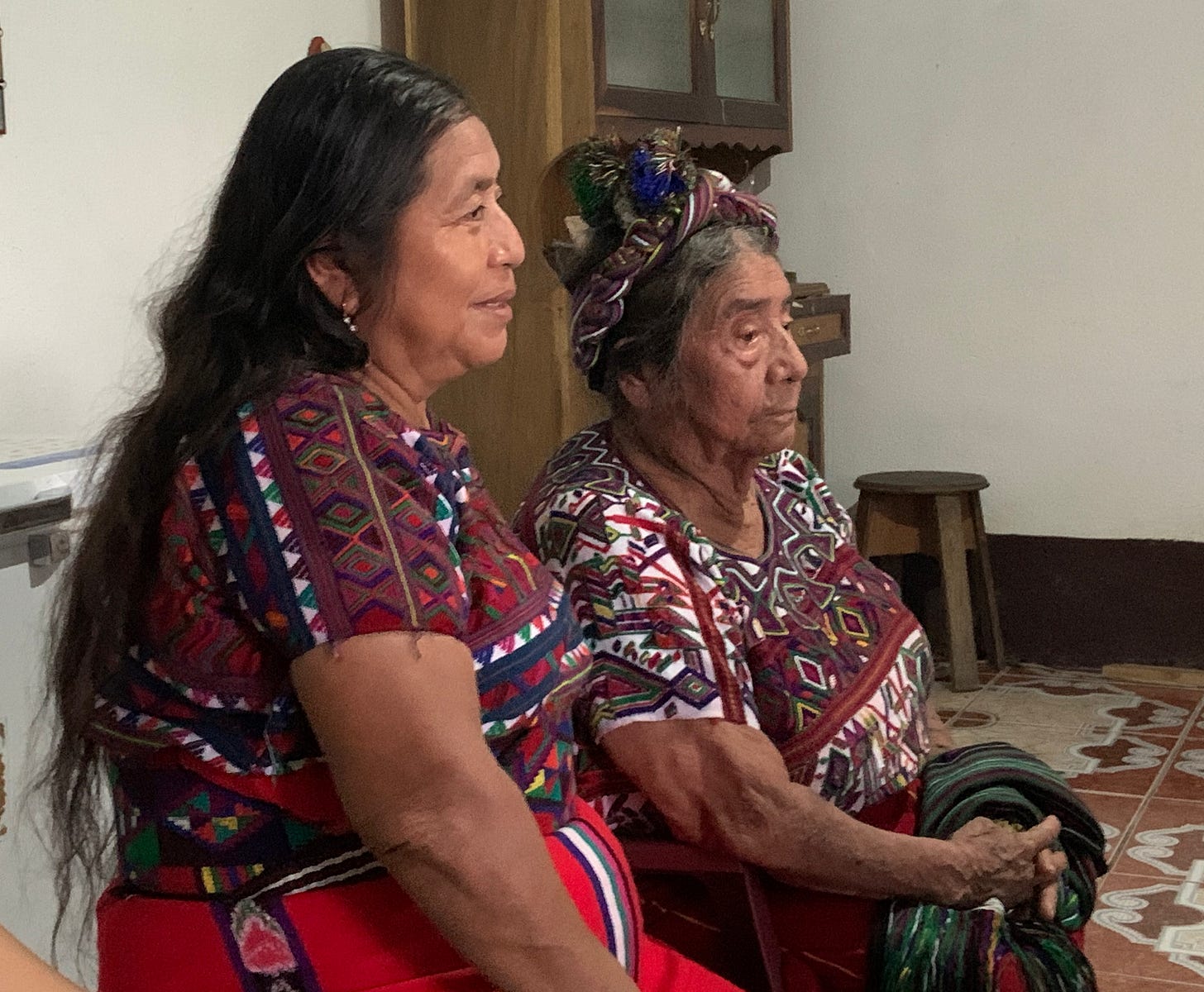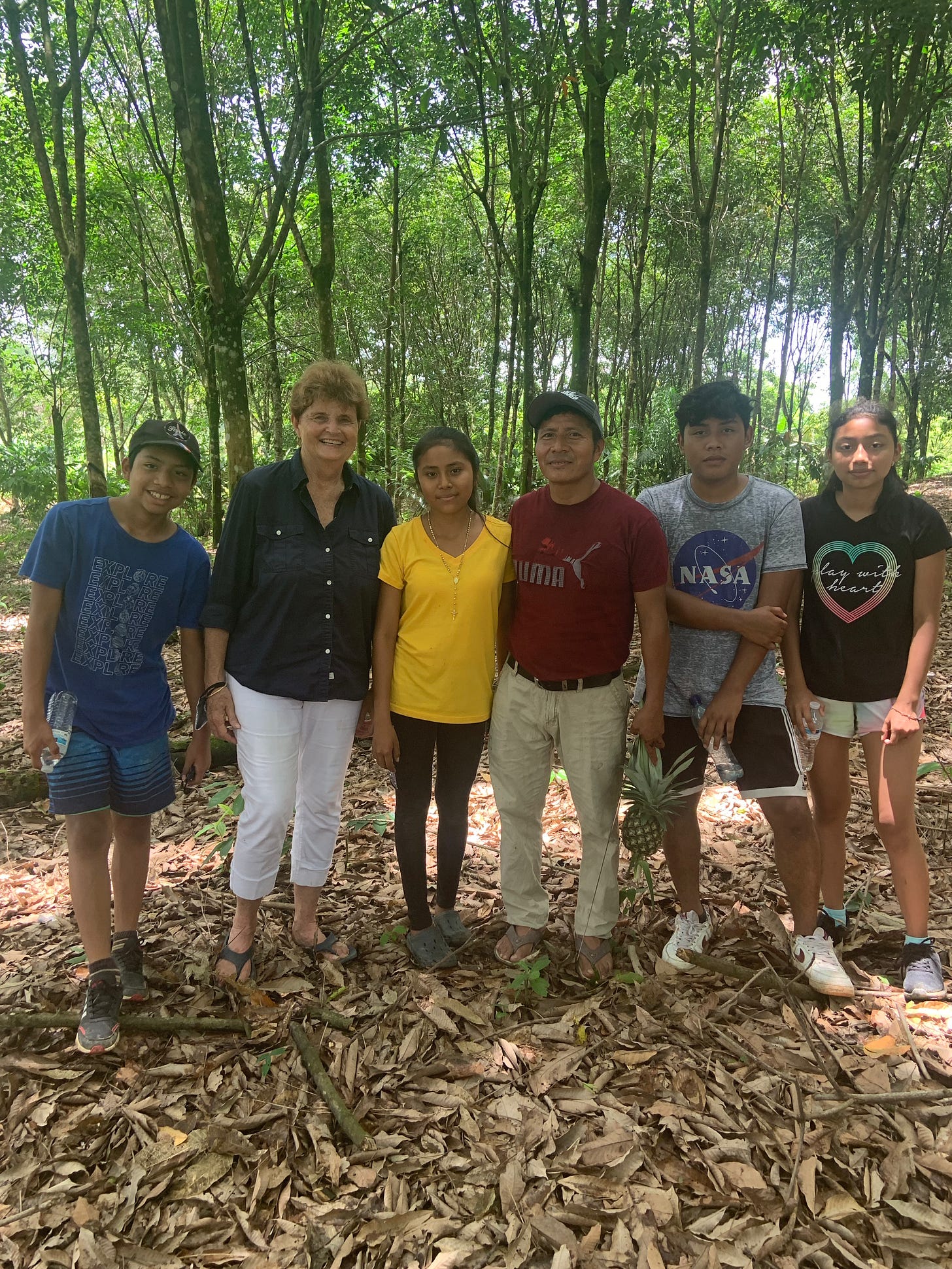Pedro was born a Maya Ixil in the seventies in Nebaj in the rural Ixil Triangle in central Guatemala. When he was about ten years old Pedro’s father and grandfather were assassinated in front of him and his mother by the Guatemalan Army. This occurred during the 36-year civil war in the country. The army would have assumed that the two men were guerillas or sympathizers. The army took Pedro’s little sister who was five years old. She has never been heard of again. Somehow Pedro’s mother in her grief found her way out of Nebaj with Pedro and his older sister. Like so many others they fled into the mountains where they lived for twelve years. Refugees in their own country.
Today Pedro lives in Primavera Ixcan in the department of El Quiche. He and his wife Liria did a stint as undocumented workers in the United States where they were able to earn enough money to return home and build a home for themselves with extra rooms available for travelers, a very modest hospedaje with a well.
To get to Primavera Ixcan one drives due north from the city of Coban towards the border with Mexico. Primavera Ixcan is a very large piece of land that was purchased towards the end of the civil war in the nineties with funds donated by foreign countries. Those who had been living in the woods for twelve or so years were invited to leave the woods and make a home in Primavera Ixcan. It is organized as a cooperative. Each family was given land on which to build a house and also land to farm. There is a rubber plantation and each family shares in the profits. There are two community stores selling everything from groceries and cell phones to school supplies. Again each family shares in the profits. There are a number of vehicles which belong to the cooperative, trucks for transporting rubber and other crops to market and a very elegant pickup truck which, I was told, doubles as an ambulance. There are schools built by various NGOs and school attendance is mandatory. There are now some three thousand people living in Primavera Ixcan, war refugees and their families, each with a story. Among them are a number of different Mayan groups with a number of different languages hence Spanish is spoken by all as the only common language.
Pedro and Liria have two older children who with their partners and young children are in Florida where they said there is so much work that they could work twenty-four hours a day. They took the grandchildren with them as the rumor was that it was easier to cross the border with children. Apparently, it was. And then there is Lucy, recently turned fifteen, who has a US passport as she was born in the United States.
The people in the Primavera community receive almost nothing in the way of government services as they are all deemed to have been guerrillas during the war and continue to resist the corrupt nature of Guatemala’s government. The first time I visited I was with a friend who is a lawyer. She said that she had multiple requests to perform civil wedding ceremonies for couples who had never been married except within the church. Some fifteen or more weddings were performed in one afternoon often with the children of the bride and groom taking photos. The last wedding ceremony was for Pedro and Liria, grandparents, with their daughter, Lucy, looking on.
Two years ago I took the kids living in my house on a road trip around Guatemala. One of our stops was in Primavera Ixcan with Pedro and his family. The hospedaje was bustling and I found myself sharing the only guest bathroom with fourteen highway workers. Pedro offered to take us and show us the land that he worked. We all piled into his beat up pickup truck. Being almost as old as Pedro’s mother I was given the front passenger seat while everyone else loaded into the back of the pickup. I asked Pedro if they had tried to find the sister who was taken by the army. He told me that they were signed up with a group that was trying to help people find their lost family members or their remains. They had not had any information for several years but he told me that they were a little hesitant to pursue it lest his sister had somehow survived and had been adopted by a powerful family in Guatemala City.
“Over there they found bodies in wells,” he told me casually. We were not too far from the now non-existent town of Dos Eres where the military had tortured and killed the inhabitants of a small rural community and put all of their bodies into a well. Shortly, we arrived at Pedro’s plot of land. It was obvious that he was very comfortable in the woods and he proudly showed up his crops of rubber, coffee, cardamom, lemons. sugar cane and more. He showed us edible plants and one plant the berries of which were used for shampoo and washing clothes during his tenure in the woods. He grabbed a machete and cut a piece of sugarcane peeling it and offering everyone a piece.
Pedro talked about having classes in the woods as the adults knew it was necessary that the children learn how to read and write. They could not cook during the daytime, he told us, as there were helicopters looking for the refugees and the smoke from a cooking fire would have given them away. People died of starvations. Others fled across the border to Mexico. Many persevered and survived and ultimately found their way to Primavera Ixcan.
Pedro’s mother, now well into her eighties is a true survivor. A proud Maya Ixil she has survived the assassination of her husband, the kidnapping and disappearance of her young daughter and the need to flee her home and live in the woods for twelve years. One evening during our stay she left to return to her own home but quickly returned laughing and saying, “I forgot my cellphone.” How adaptable we are.













